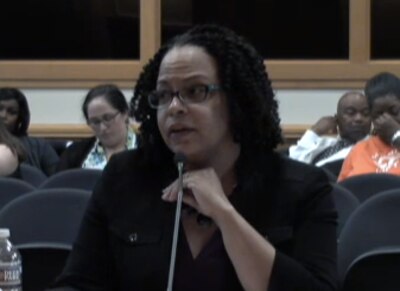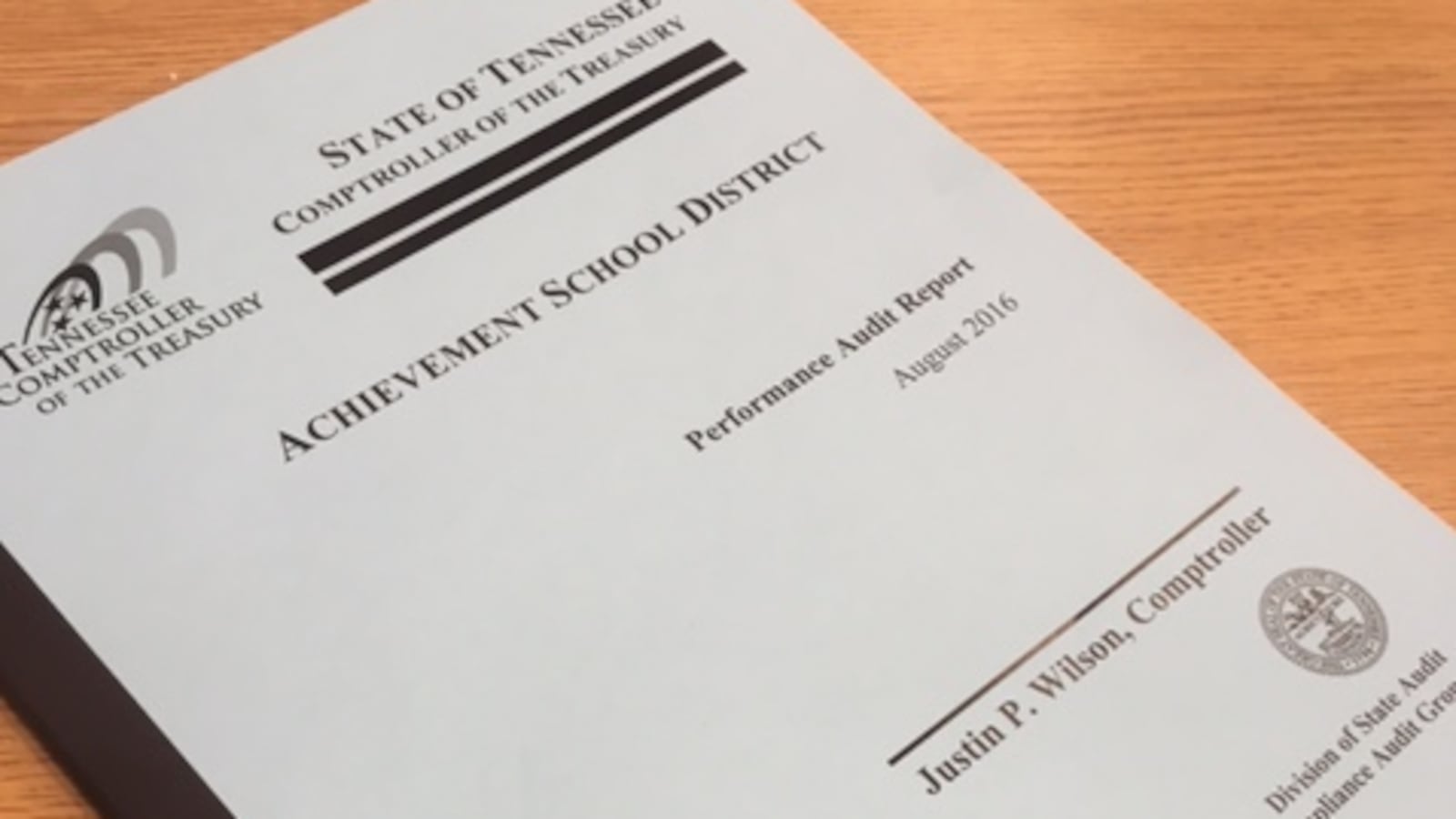The Tennessee Department of Education has taken control of significant portions of the Achievement School District after a state audit revealed mismanagement.
But state officials say they are confident in the district’s work in schools and optimistic that the management issues are being resolved.
The comprehensive audit, a first for the state-run district entering its fifth school year, was conducted by the state comptroller as part of a regular oversight process and released Wednesday morning. It found that the district had spent $2,500 for a holiday party that featured “expensive finger foods, alcohol, and a bartender.” The audit also found the ASD was not monitoring how its charter networks’ handle their finances. And it concluded the district did not always conduct performance reviews or verify applicants’ post-secondary degrees for positions in its central office.
As state officials learned about the audit’s findings this spring, they took over control of the ASD’s finances, human resources, and federal program oversight on July 1. But despite the dramatic move, one of the state’s auditors cautioned against reading too much into the findings.

“I don’t think there’s anything we can characterize that causes us concern… We are satisfied with the management responses,” Jason Mumpower, the chief of staff for the Tennessee Comptroller of the Treasury, told state lawmakers on Wednesday.
“The real proof of that will be in the next time we evaluate them. We like what they’re saying. Now they just need to follow through,” he said.
Speaking during a hearing about the future of the district, Mumpower emphasized that management glitches are common for new state organizations. He also characterized ASD officials as “more concerned with ‘getting the job done’ than paying strict attention to financial controls.”
That characterization gets at the heart of how the ASD was designed. State officials decided to give unprecedented autonomy to a small district in charge of some of Tennessee’s lowest-performing schools, in the hopes that dramatic changes would yield higher test scores. To lead the district, they tapped an educator steeped in a movement to improve education for poor children that famously advocates doing “whatever it takes” to achieve that goal.
That leader, Chris Barbic, presided over the district until last year, working to woo top educators and charter operators with strong records to take over struggling schools whose students face steep challenges. Their efforts have so far not produced the kind of test score gains the ASD set out to accomplish, but they have contributed to a growing sense that Memphis and Tennessee are important hubs of education innovation.
The audit commended the district for how it assigns schools to charter operators, saying those practices were in line with national standards. Yet according to the audit, those efforts didn’t always follow the law, state regulations, and best practices in management. And state education officials couldn’t easily detect the lapses.
“The statute provides and the department chose to allow ASD to operate autonomously in all respects, thus preventing the department’s prompt recognition and reaction to ASD’s administrative actions,” the audit report said.
In the audit report, ASD officials accepted the findings. But ASD officials also emphasized that the district used private funds, drawn from the $3 million it received in philanthropic support, to pay for parties.
Already, some critics of the ASD, which adds schools by removing them from their local districts, are using the audit to argue that the state-run district is not competent to turn around low-performing schools.
But state education officials say their move to tighten controls should not be misinterpreted as a referendum on the district’s work to improve student achievement.
“The audit was not about the programmatic work of the ASD. The department continues to support the ASD in their mission to improve the bottom 5 percent of schools in the state,” Kathleen Airhart, a deputy commissioner of education, told lawmakers. “We fully understand the seriousness of the audit concerns, and we understand that it’s our responsibility to ensure state and federal funds are spent … as intended.”
Reporter Grace Tatter contributed to this report.
Correction, Aug. 22, 2016: This story has been corrected to report that the ASD lacked employee performance reviews and verifications of applicants’ education degrees within its central office staff. A previous version incorrectly reported that the omission was within the ASD-run Achievement Schools in Memphis.

